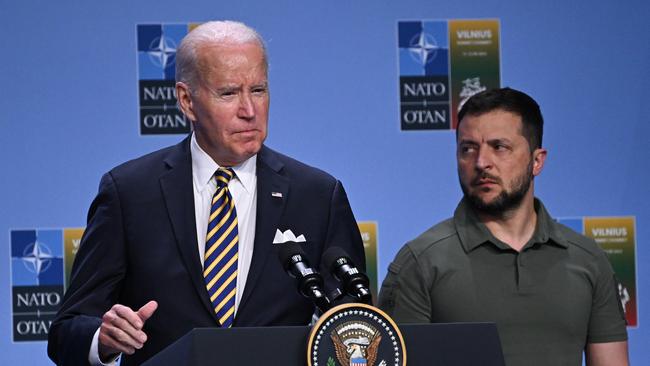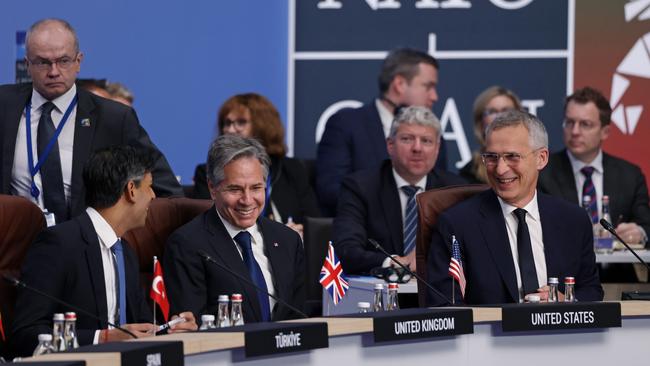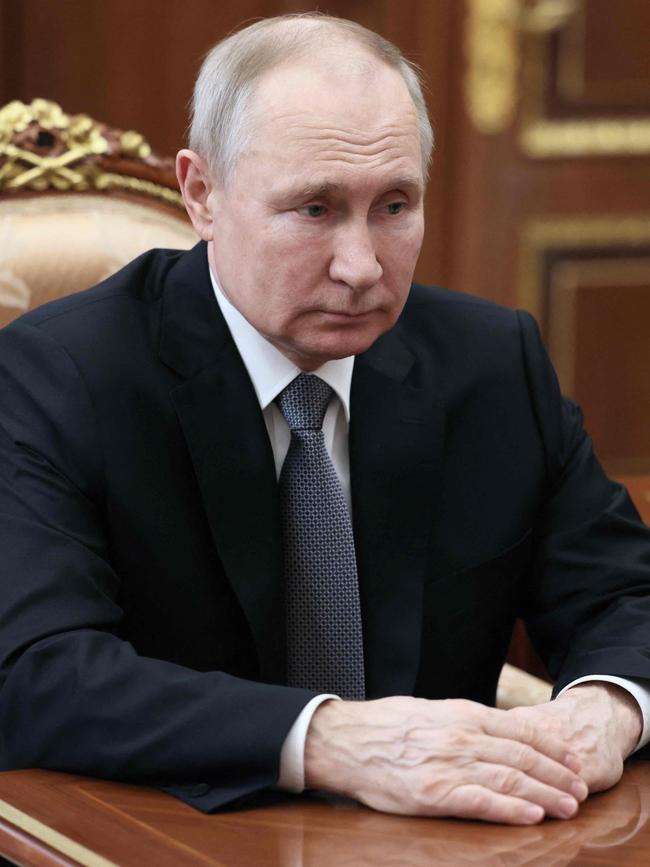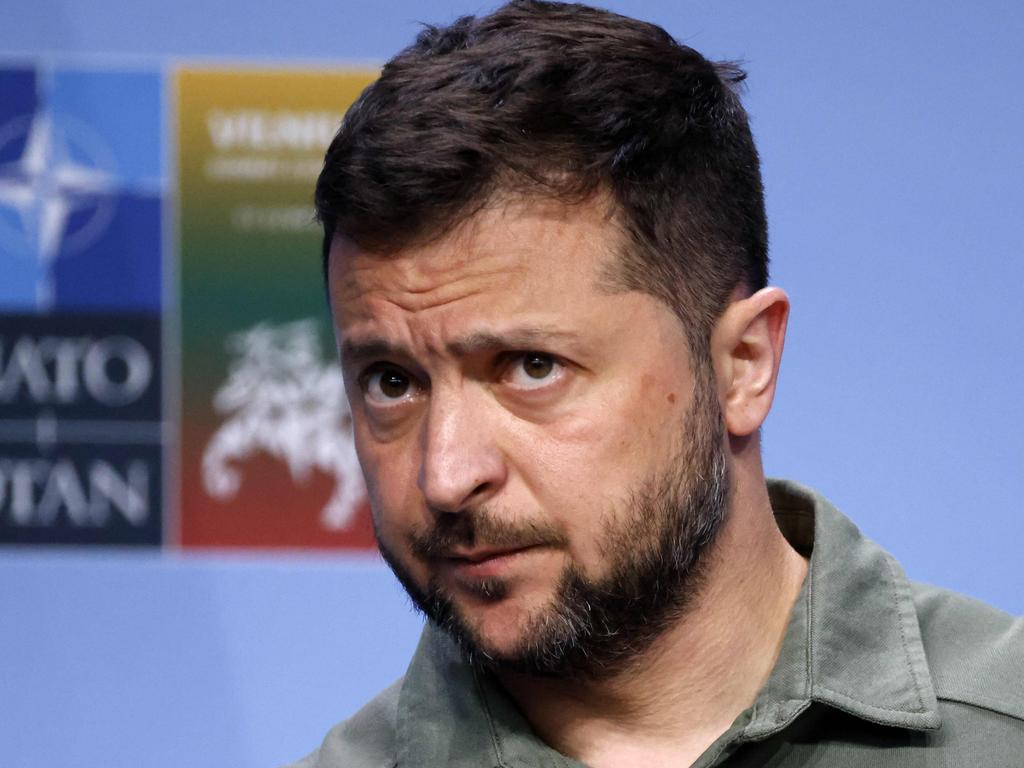Ukraine has become the latest target in government propaganda blitz
The Ukraine war has joined climate change and Covid-19 as the third great wellspring of government propaganda. Not since the Second World War, have we been so awash with noble and ignoble lies and falsehoods.

You might have thought the embarrassment of the Covid-19 era, where many government messages – from the effectiveness and costs of lockdowns and vaccine mandates, through to the origins of the disease itself – might have instilled some modesty on the part of our leaders, given so many of those messages turned out to be obviously wrong.
The same could be said for climate change, where dire forecasts are repeatedly shown up as hyperbole and rubbish. Thanks to the wonderful world of cheap renewable energy, households are continually told power prices are about to fall as they climb ever higher. But the desire to manipulate the public has become insatiable and even more brazen. Last week President Joe Biden told the world – three times no less – that Russia had already lost the war in Ukraine in what must be the most shameless example of nonsense ever publicly spoken by a sitting US president. Plainly, it hasn’t.
Ukrainian forces have struggled to breach Russia’s defences in the Donbas and Crimea – despite the provision of tens of billions of dollars in military hardware from the US and other supporters.
Biden’s comment came days after the President himself ordered cluster bombs be sent to Ukraine and just before he announced a fresh mobilisation of 3000 US troops for eastern Europe. If Franklin D. Roosevelt or Winston Churchill declared Germany had lost in 1943 – or even later – it would have been greeted with shock and incredulity. In other words, they wouldn’t have treated their electorates with such contempt.

But no one seemed to care about Biden’s ridiculous comment because such blatant propaganda has become par for the course. In September, the President and Secretary of State Antony Blinken slammed suggestions the US had any knowledge of who blew up the Nord Stream pipelines, and then earlier this year leaked to major news outlets that US intelligence agencies had had wind of a plot months before, with Ukrainian vigilantes identified as the likely culprits.
From early last year Biden successively promised to provide Ukraine with Abrams tanks, F-16s, or longer-range rockets, and then proceeded to break each undertaking. One could rightly wonder what the next broken red line will be. Anyone following the news over the past 500 days of the tragic Ukraine war would expect that Vladimir Putin was about to die, or Russia to collapse under supposedly crippling sanctions, which have caused at least as much harm to Europe as they have to Russia.
If Russia is about to collapse and withdraw, it makes a lot more sense to send more munitions or even escalate. If Covid-19 really is deadly and the new vaccines highly effective, maybe lockdowns make sense. If the world is on the precipice of climate catastrophe maybe we should put up with high prices and a dysfunctional energy market. Ironically, propaganda should be less effective in an era where we have access to practically limitless amounts of information, from a variety of sources, at our fingertips. Yet many of us appear to have the memories of goldfish, ready to consume the next instalment of conventional wisdom served up to us, even if it contradicts our own experience.

Even so, the past three years have seen the emergence of a supercharged scepticism of government and, sadly, parts of the media too. This was an attitude we once associated with people unlucky enough to live in authoritarian nations such as Russia and China.
In the 1970s, around three-quarters of Americans trusted the government, according to Pew Research, a figure that’s steadily declined to around 20 per cent. The decline in trust of public health experts has plunged even more sharply over the past few years. As governments seek to work hand-in-hand with social media companies to stamp out so-called “misinformation”, which is really code for political or scientific disagreements with the orthodoxy, these figures will only decline further.
Scott Adams, creator of the Dilbert cartoon, recently quipped that in 2023 conspiracy theorists were becoming more credible. “The public did not create that situation. The government and the media colluded to bring us to this point,” he said. Indeed, if you thought the idea that the US intelligence agencies had any involvement in JFK’s assassination was ridiculous a few years ago, you might be starting to have second thoughts after the past few years.
The only way recent experience can lead to any good is if more journalists cast a critical eye over what politicians and bureaucrats tell them. Dissent and questioning orthodoxy should be prized. It’s easy to go along with government propaganda, and costly to speak out against it, so those brave enough to mount contrary arguments are often the most worthy of attention.
Governments have their own incentives. It’s no coincidence climate change, Covid-19 and war propaganda all have the same side-effect of increasing government power over the economy and society, and enriching a handful of powerful corporations that hold much sway over their policies, be they in pharmaceuticals, energy, or weapons manufacturing. If we can’t stop the propaganda, let’s at least respect those who disagree.






The war in Ukraine has joined climate change and Covid-19 as the third great wellspring of government propaganda. Not since the Second World War, when such illiberal methods were at least understandable, have we been so awash with noble and ignoble lies and falsehoods, blithely retailed by a large portion of the mainstream media.